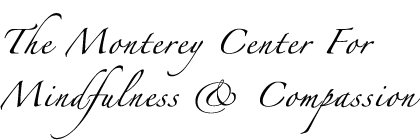Self-Compassion in a Too- Much-Info World
We see it in little kids. Children soak in what they see, hear, feel, and smell in the world around them like hungry sponges. As they do, all those impressions start to shape the remarkable mind-body instrument through which language, thought, feeling, and emotional fluctuation come to inform their daily lived experience.
What we humans take in from the world around us, either by choice or by happenstance, matters — and not just when we’re babies.
Of course, in today’s world, technology delivers a tsunami of stimuli to take in and sift through — some of which stirs awe, and deep gratitude. But a lot of it is neither useful nor helpful; and unfortunately, we have the statistics on rising rates of anxiety and depression to support the latter.
It can be hard to know when and how to hit the brakes on media consumption or lifestyle demands, while also trying to remain an informed global participant. Sometimes, over the course of the day we may find ourselves faced with emotional or spiritual overload from a news story or life situation that we didn't even see coming.
Enter mindful self-compassion: However you’re spending your day -- whether in front of a screen, or anywhere else -- taking a periodic mindfulness break to check in with how you’re doing can teach you a lot about whether what you’re taking in is helpful and supportive of your efforts, or whether it's becoming too much, even pushing you into overwhelm or fatigue.
If the latter is showing up more often than you’d like, and you’re not sure how to prevent Not Enough from turning into Too Much, click here for a powerful description and list of easy-to-implement self-care tips. This list was developed by psychologist Kaethe Weingarten* for health professionals faced with highly stressful, often disturbing life circumstances, as part of their job. But these ideas are useful for any of us whose daily intake on or off the job leaves us feeling fatigued, distressed, or numb.
In the 8-week Mindfulness-Based Stress Reduction (MBSR) workshop, we spend a week attending not only to what we take in, including media, entertainment, what we eat, and interactions with others. We also take a look at how each of these impact us mentally, emotionally, and physically. It’s surprising how much of what participants discover falls into the auto-pilot bucket of unexamined habit, rather than discerning choice.
The STOP practice, introduced in MBSR, offers a quick way to pause for an hourly wellness check, which can be done pretty much anywhere, any time during the day. If you give yourself this break — whether one, three, or ten times a day — your blood pressure, heart space, and nervous system will most likely thank you:
Stop. Take a quiet pause.
Take 2 or 3 slow, conscious breaths.
Observe how you’re doing: Notice what you’re feeling as you scan for any physical sensations, emotions, and thoughts that are present.
Proceed, mindful of your intentions for the rest of your day.
*Kaethe Weingarten, Ph.D. (she/her) directs the Witness to Witness (W2W) Program for MCN (Migrant Clinicians Network). The goal of W2W is to help the helpers, primarily serving health care workers, attorneys and journalists working with vulnerable populations.
